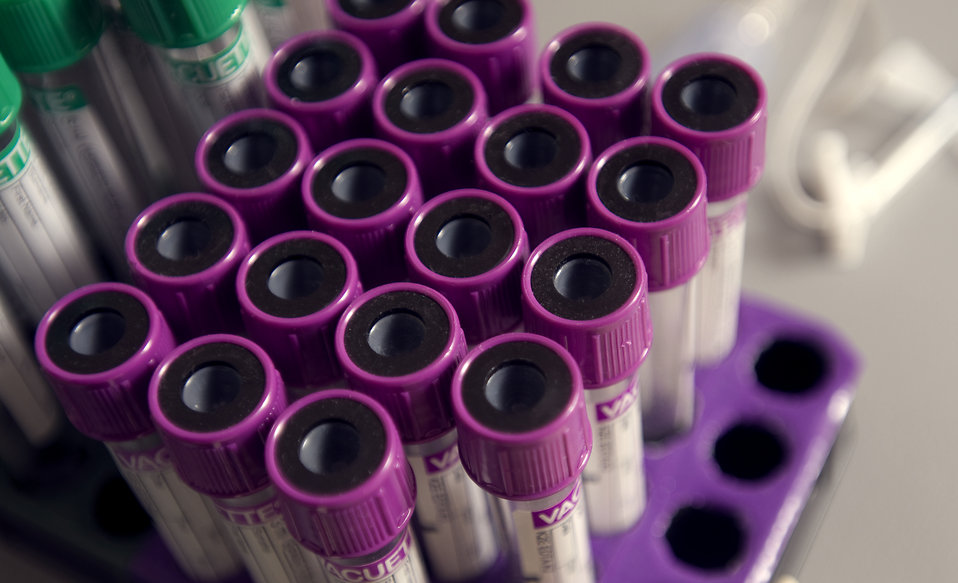Rationale: Drugs used in chemotherapy use different ways to stop tumour cells from dividing so they stop growing or die. Radiation therapy uses high-energy x-rays to damage tumour cells. It is not yet known if chemotherapy is more effective with or without radiation therapy in treating brain metastases.Purpose: Randomised phase III trial to compare the effectiveness of chemotherapy with or without radiation therapy to the brain in treating patients who have stage IV melanoma with asymptomatic brain metastases.
Official Title
Temozolomide Versus Temozolomide + Whole Brain Radiation In Stage IV Melanoma Patients With Asymptomatic Brain Metastases.
Conditions
- Brain and central nervous system tumours
- Melanoma (skin)
Study Type
Interventional
Study Design
Treatment, Randomised, Active Control.
Further Details
Objectives:
-
Compare the efficacy of temozolomide with or without radiotherapy in terms of overall survival in patients with stage IV melanoma with asymptomatic brain metastases.
-
Compare the time to appearance of neurological symptoms in patients treated with these regimens.
-
Compare the progression-free survival of patients treated with these regimens.
-
Compare the quality of life and quality-adjusted survival of patients treated with these regimens.
-
Compare the toxicity of these regimens in these patients.
Outline:
This is a randomised, multicentre study. Patients are stratified according to LDH levels (less than 225 U/L vs 225 U/L or more), concurrent metastases (visceral vs soft tissue), and participating centre. Patients are randomised to 1 of 2 treatment arms.
-
Arm I: Patients receive oral temozolomide once daily on days 1-5. Treatment continues every 4 weeks for a maximum of 1 year in the absence of disease progression or unacceptable toxicity.
-
Arm II: Patients receive temozolomide as in arm I and whole brain radiotherapy on days 8-12 and 15-19 during the first course of chemotherapy.
Study Start
April 2001
Eligibility & Criteria
Eligibility
- Ages Eligible for Study: 18 Years and older
- Genders Eligible for Study: Both
- Accepts Healthy Volunteers: No
Criteria
Disease Characteristics:
Histologically confirmed unresectable metastatic melanoma
Must have asymptomatic brain metastasis that is not amenable to surgery or stereotactic radiosurgery (gamma knife, Linac)
- Must have concurrent visceral/soft tissue metastases
- At least 1 site of measurable disease (not necessarily the brain metastasis)
Documented evidence of disease progression defined by 1 of the following conditions:
- More than 25% increase in the size of at least 1 measurable lesion
- Appearance of a new lesion
- A significant increase in the size of nonmeasurable disease
- No neurological symptoms, including signs of elevated intracranial pressure.
Patient Characteristics:
Age: 18 and over
Performance status: ECOG 0-2
Life expectancy: Not specified
- Hematopoietic:Absolute neutrophil count at least 1,500/mm^3
- Platelet count at least 100,000/mm^3
- Hemoglobin at least 10 g/dL
Hepatic:
- Bilirubin less than 1.5 times upper limit of normal (ULN)
- SGOT or SGPT less than 3 times ULN
- Alkaline phosphatase less than 3 times ULN
Renal:
- Urea less than 1.5 times ULN
- Creatinine less than 1.5 times ULN
Other:
- No frequent vomiting or medical condition (e.g. partial bowel obstruction) that would interfere with oral medication intake
- No other prior or concurrent malignancy except surgically cured carcinoma in situ of the cervix or basal cell or squamous cell skin cancer
- No uncontrolled infection
- HIV negative
- No AIDS-related illness
- Not pregnant or nursing
- Negative pregnancy test
- Fertile patients must use effective contraception
- No psychological, familial, sociological, or geographical condition that would preclude study
Prior Concurrent Therapy
Biologic therapy:
- Prior cytokine via isolated limb perfusion for local-regional melanoma allowed
- No other prior cytokine for metastatic melanoma
- No concurrent colony-stimulating factors, including epoetin alfa or filgrastim (G-CSF)
- No other concurrent immunologic or biologic therapy
Chemotherapy:
- Prior chemotherapy via isolated limb perfusion for local-regional melanoma allowed
- No other prior chemotherapy for metastatic melanoma
- No other concurrent chemotherapy
Endocrine therapy:
- Concurrent corticosteroids allowed during radiotherapy (arm II only)
- No concurrent hormonal therapy
Radiotherapy:
- See Disease Characteristics
- No other concurrent radiotherapy
Surgery:
- See Disease Characteristics
- Recovered from the effects of any prior major surgery
Other:
- No other concurrent investigational drugs.
Total Enrolment
Contact Details
Juergen C. Becker (MD, PhD)
Universitaets-Hautklinik Wuerzburg
All content and media on the HealthEngine Blog is created and published online for informational purposes only. It is not intended to be a substitute for professional medical advice and should not be relied on as health or personal advice. Always seek the guidance of your doctor or other qualified health professional with any questions you may have regarding your health or a medical condition. Never disregard the advice of a medical professional, or delay in seeking it because of something you have read on this Website. If you think you may have a medical emergency, call your doctor, go to the nearest hospital emergency department, or call the emergency services immediately.






